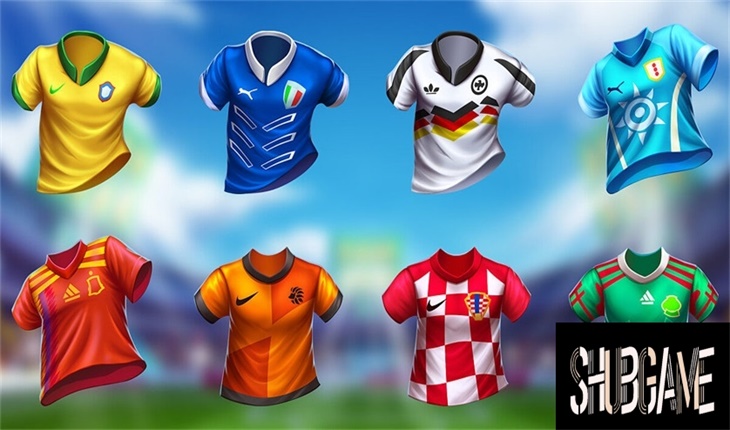
Virtual Sports Betting Ultimate Guide

What Are Virtual Sports?
Virtual sports are computer-generated games with outcomes determined by complex algorithms. These games often emulate real sports like soccer or horse racing and are visually presented on a screen.
The concept of virtual sports has been around for decades. The earliest virtual sport was a baseball simulation game created by IBM engineer John Burgeson in 1961. This simulation featured two teams competing, utilizing a random number generator and player statistics to determine the results, complete with a play-by-play description.
Today, virtual sports have evolved significantly, employing advanced technology, including motion capture, to create incredibly realistic 3D graphics and animations, making them almost indistinguishable from real sports.
Major sportsbooks like bet365 and Caesars Sportsbook now offer virtual sports betting, allowing users to wager real money on virtual sports outcomes.
How Do Virtual Sports Work?
Virtual sports utilize random number generators to decide game or race outcomes, but there are intricate mechanics behind the scenes to create unbiased, predetermined results. This keeps punters engaged throughout the event.
Each participant in a virtual race or game is assigned an ability score, and the probability of winning is weighted based on this score. Better-rated participants are considered favorites, while those with lower scores have reduced chances of winning. This adds realism and excitement to the games, as events feature participants with varying abilities.
In addition to these weighted probabilities, a level of randomness or luck is introduced into the algorithm, similar to real-life sports. This is where the random number generator comes into play, determining the final outcome based on weighted odds.
In summary, virtual sports rely on two key factors:
Outcomes are weighted favorably or unfavorably based on ability scores.
A random number generator introduces unpredictability and determines the final result.
Are Virtual Sports Rigged?
A common misconception among casual players is that virtual sports are rigged to favor the casino or sportsbook. However, this is untrue. Virtual sports adhere to the same laws and regulations as other casino games, ensuring fairness.
While virtual sports can exhibit more volatility due to the random number generator, they are fair games, and the sportsbook cannot control the outcomes. Unlike real sports, where instances of match-fixing exist, virtual sports are immune to such manipulation.
In fact, one could argue that virtual sports betting is fairer than real sports, as a computer program cannot be bribed or influenced.
Popular Virtual Sports to Bet On
Various virtual sports are available for betting in the US, with new options continually emerging. Some of the most popular virtual sports include:
Virtual soccer
Virtual horse racing
Virtual greyhound racing
Virtual tennis
Virtual basketball
Virtual motorsport
Virtual football
Virtual cycling
Virtual darts
The beauty of virtual sports betting is that you don't need in-depth knowledge of the sport to participate. Unlike traditional sports betting, you rely on the odds provided by the sportsbook, making it accessible to everyone.
Is Virtual Sports Betting Legal?
Virtual sports betting falls into a legal gray area, primarily because it doesn't precisely resemble traditional sports betting. Whether it's considered legal or not can vary by state. Many states that have legalized sports betting did not explicitly address virtual sports betting in their legislation.
The best approach is to check with your local licensed sportsbook. Reputable sportsbooks like DraftKings comply with local laws and use geo-targeting technology to ensure that your bets are in compliance with state regulations. If your licensed sportsbook offers virtual sports betting in your state, it is likely considered legal.
Virtual Sports Betting Sites in the US
While virtual betting is still relatively new, several sites and sportsbooks offer advanced virtual sports wagering. Some popular options include:
bet365
Caesars Sportsbook
Bovada
Betway
These platforms provide various virtual sports options, allowing users to bet on their preferred events.
What Types of Bets Can You Make on Virtual Sports?
Betting on virtual sports resembles traditional sports betting in terms of available bet types. While there are fewer markets than real-life events, you can still find a variety of bet types depending on the sport and bookmaker.
For virtual soccer betting, you can place bets on markets like win-draw-win, over/under, correct score, and Asian handicaps. Some bookmakers even offer double chance markets.
Race events, such as horse racing, offer bets like win, each-way, forecast, and tricast. The available bet types may vary depending on the sport and bookmaker.
Advantages and Disadvantages of Virtual Sports Betting
Advantages:
Non-stop Fun: Virtual sports events run continuously, usually lasting only a minute or two, ensuring non-stop action with minimal waiting time between events.
No Prior Knowledge Needed: Unlike traditional sports betting, virtual sports do not require extensive knowledge of the sport, making them accessible to everyone.
Fairness: Virtual sports are governed by strict rules and regulations, ensuring a fair playing field with no room for manipulation.
Disadvantages:
Knowing When to Stop: The fast-paced nature of virtual sports can lead to excessive gambling. Setting limits and knowing when to stop is crucial.
Lack of Skill: If you enjoy analyzing statistics and making informed decisions, virtual sports may not provide the same level of engagement as traditional sports betting.
Virtual Sports Betting Tips
While virtual sports outcomes are random, here are some tips to enhance your enjoyment:
Play Low Stakes: Due to the volatility of virtual sports and the fast-paced nature, consider smaller bets than you would in traditional sports betting.
Choose the Sport: Races with fewer runners offer a higher chance of winning, although odds may be lower. Start with events where you have a higher likelihood of success.
Promotions and Bonuses: Take advantage of bonuses and promotions offered by sportsbooks, as they provide extra value.
Bankroll Management: Set a budget for your betting activity and stick to it. Keep your betting bankroll separate from personal finances, track your betting history, and build your bankroll over time.
Virtual Sports vs. Real Sports Betting
While virtual sports aim to replicate real sports closely, several key differences exist:
Outcomes in virtual sports are entirely random, and knowledge of the sport doesn't provide an advantage.
Virtual sports lack the emotional connection to teams, players, or jockeys found in real sports.
Virtual sports offer fewer betting markets compared to traditional sports.
Virtual sports can be more volatile due to the randomness of the software.
Future of Virtual Sports Betting
As interest in virtual sports betting grows and technology advances, the line between virtual sports and real sports will blur. Expect improvements in visuals, with more realistic graphics and animations. Betting markets are also likely to expand, offering a more varied and engaging experience.
Virtual sports betting is an exciting and evolving field, and the future holds promise for even more immersive and engaging experiences. Stay updated on the latest developments in virtual sports betting.



Add a comment